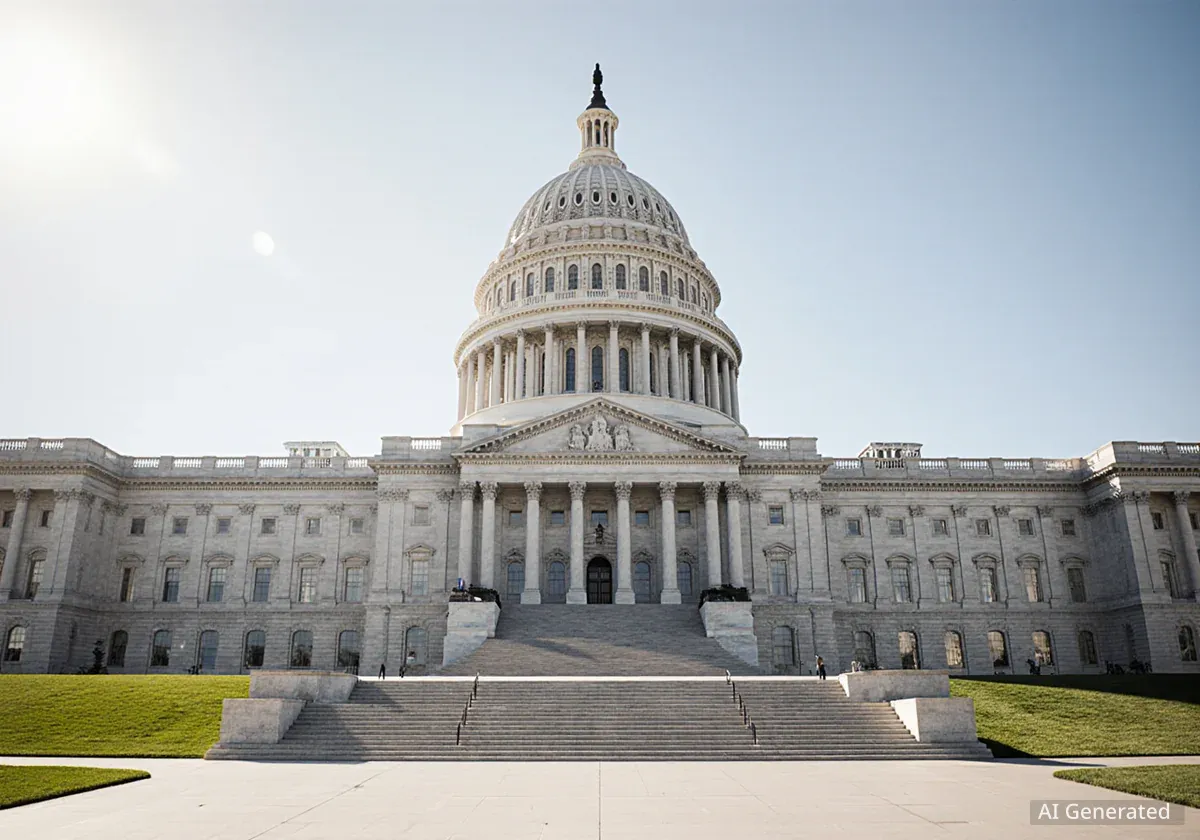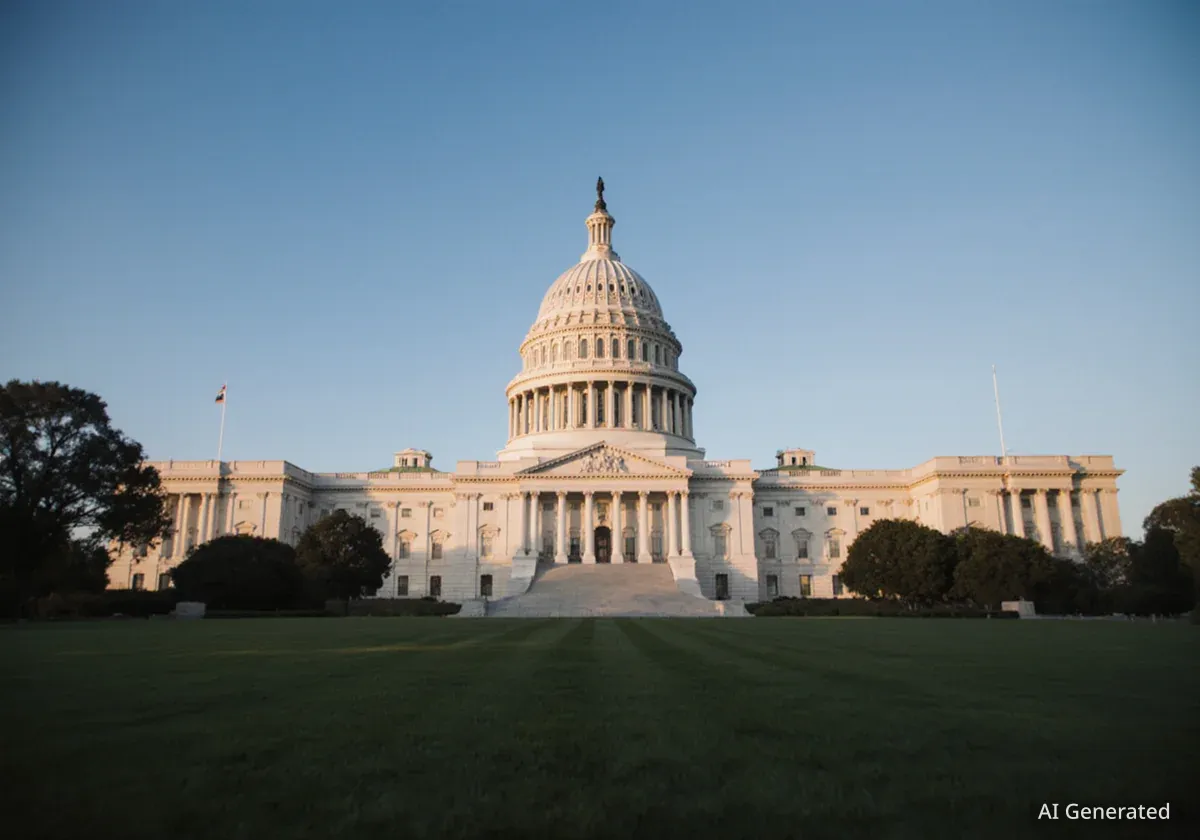Israeli Finance Minister Bezalel Smotrich described the Gaza Strip as a potential real estate “bonanza” during a conference in Tel Aviv on Wednesday. The far-right minister also stated that he is in discussions with the United States regarding the division of the territory after the current conflict.
Key Takeaways
- Finance Minister Bezalel Smotrich referred to Gaza as a real estate “bonanza” at a Tel Aviv conference.
- He claimed to have started negotiations with the United States on how to divide the land in Gaza.
- Smotrich has a history of advocating for the reestablishment of Israeli settlements in the Gaza Strip.
- The minister also publicly disagreed with Prime Minister Netanyahu's recent comparison of Israel to Sparta.
Remarks on Gaza's Future
Speaking at a real estate conference, Finance Minister Bezalel Smotrich presented a vision for the future of the Gaza Strip that involves significant rebuilding and Israeli presence. He suggested that the financial investment required for such a project would be worthwhile.
“We have paid a lot of money for this war. We have to see how we are dividing up the land in percentages,” Smotrich said. He framed the destruction from the war as a preliminary step toward redevelopment, stating, “the demolition, the first stage in the city’s renewal, we have already done. Now we need to build.”
These comments reiterate his long-held position, which contrasts with the official stance of Prime Minister Benjamin Netanyahu, who has said he does not plan to reestablish Israeli settlements in Gaza. The international community, including the United States, has also maintained that Gaza should be governed by a Palestinian body post-war.
International Position on Gaza
The United States, along with many other nations and international bodies, has consistently opposed the idea of Israeli reoccupation or settlement of the Gaza Strip. The prevailing international view supports a two-state solution, with Gaza forming part of a future Palestinian state.
Claims of US Negotiations
During his address, Smotrich asserted that discussions with American officials about his vision for Gaza were already underway. He claimed to have “already started negotiations with the Americans” on the matter.
He further referenced a specific development proposal, stating, “There is a business plan, put together by the most professional people here, that is on President Trump’s desk.” Donald Trump, during his presidency, made comments in February suggesting the U.S. could take over Gaza, relocate residents, and develop it into the “Riviera of the Middle East.”
“We have to see how we are dividing up the land in percentages... the demolition, the first stage in the city’s renewal, we have already done. Now we need to build.”
While Trump has not recently emphasized this plan, a report from The Washington Post last month indicated that a proposal for postwar reconstruction under U.S. control for a decade was still being considered within some circles of the administration. Officials from the White House and the U.S. State Department did not provide an immediate response to requests for comment on Smotrich's latest claims.
Consistent Advocacy for Resettlement
Smotrich's statements are part of a consistent pattern of advocacy for reestablishing an Israeli civilian presence in territories from which Israel withdrew. In a recent party newsletter, he confirmed he was working to reestablish Ganim and Kadim, two former Israeli settlements in the northern West Bank that were dismantled during the 2005 disengagement from Gaza.
In July, he participated in a Knesset conference titled “The Gaza Riviera – from vision to reality,” where plans for Jewish settlements in Gaza were presented. At that event, he declared that Gaza would become an “inseparable part of the State of Israel.”
The 2005 Disengagement
In 2005, Israel unilaterally withdrew all of its soldiers and approximately 8,000 Israeli settlers from 21 settlements in the Gaza Strip and four in the northern West Bank. The move was highly contentious within Israel at the time.
His vision for the territory, articulated in May, involved confining the Palestinian population to a small section of the Strip while the rest would be “totally destroyed” for redevelopment. This position has been widely rejected by Palestinians and the international community.
Disagreement with Netanyahu's Economic View
In addition to his comments on Gaza, Smotrich also used the conference to publicly distance himself from recent remarks made by Prime Minister Netanyahu. He expressed his disapproval of Netanyahu's comparison of Israel's economy to that of ancient Sparta.
Netanyahu had suggested Israel might need to become a self-reliant economy with “autarkic characteristics” and a kind of “super-Sparta” due to increasing international isolation. These comments were met with criticism from opposition leaders and business figures and were followed by a noticeable dip in the Tel Aviv Stock Exchange.
“I do not agree with the prime minister’s words, and I really did not like the comparison to Sparta,” the finance minister stated. In response to the backlash, Netanyahu later clarified that his comments were intended to apply specifically to Israel's defense industries and not the wider economy, expressing “full confidence” in its overall strength.





